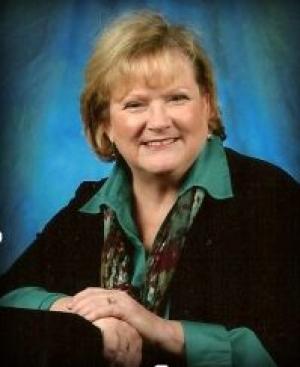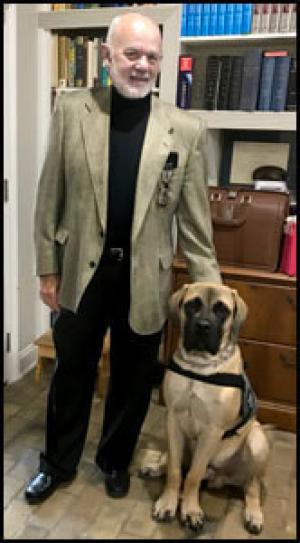Resources
Revamp the syllabus so assessment is fair, generative, and manageable. Thriving as an early career faculty might mean new and different kinds of assignments and assessment. Get rid of assignments that overwhelm and cause suffering. Dr. Nancy Lynne Westfield hosts Dr. Roger Nam (Candler School of Theology - Emory University).

Vice president of the United States, Kamala Harris is known for wearing Chuck Taylor Converse sneakers and pearls that are emblematic of her historical significance as the first African American and South Asian woman to assume this high office. Girls and women everywhere donned the shoes and pearls to celebrate “Chucks and Pearls Day” on the day of her inauguration, January 20, 2021. Chucks and pearls have surplus meaning for VP Harris, and I would argue, for theological educators as well, and not just in the US context. I am an American teaching at a seminary in Canada where I find a strong investment of support for Harris’s achievements and optimism about what her leadership brings to the global stage. Is it sexist to focus on what women in leadership wear? One could look at it that way. The infatuation with Bernie Sanders’s mittens, however, might even the score. Conversely (pun intended), one could find inspiration in the “Twenty Pearls,” the esteemed early twentieth century founders of Harris’s historically Black sorority, Alpha Kappa Alpha Sorority, Inc. Biblically speaking, pearls are symbolic of wisdom gained through experience, and their value is juxtaposed against the swine of the world. Even after thirty years of teaching I seek confidence boosters to help me in the classroom, whether I literally or metaphorically “wear them.” Those ‘pearls of great price’ who came before me and braved male-dominated theological education, and my sister-colleagues who witness against sexism, racism, and classism, are confidence boosters for me. When there are confidence busters (like a vengeful comment on a course evaluation, or a double standard toward female faculty), the boosters offer examples of tenacity. When I feel I need to challenge a student on an unexamined idea, I muster the courage and grace to do so from the pearls in my life. If I feel spiritually or intellectually dried up, I go to the wisdom bearers of my tradition. The Converse sneakers were Harris’s go-to on the campaign trail. She was “laced up and ready to win” (“Why are Women Wearing Chucks and Pearls Today?”). Harris viewed the shoes as energizing and as telling a story about who she is as a well-grounded, everyday person. She saw them as a symbol of universality, an equalizing force, pointing toward the unity she seeks for the country. Harris has more than her share of detractors, but in her poise, one can see deep strength and steadfastness. The political arena, like the classroom--also political-- puts one in a vulnerable place. Confidence and agility are two invaluable personal resources in both spaces. And in this world of virtual and online teaching we especially need flexibility and an embodied, “real” presence. Teaching has a “ready to hit the ground” quality that requires quick movements and agility—dodging, shifting, and taking chances. Confidence comes with comfort in one’s body bringing a presence to the space. In the power dynamics of teaching and learning, confidence is not to be confused with cockiness or authoritarianism. It is the willingness to offer hospitality, to say under one’s breath, “Yes, I have a PhD which gives me knowledge and expertise in my field, but I still wear sneakers. I am a learner too.” Confidence is the readiness to be challenged by students in order to calibrate one’s own thinking. It also has the quality of standing firm when necessary. For example, sometimes students do not want to read something they disagree with or that causes a visceral reaction. I might persist with the assignment, knowing that it will hone our practice of discourse with those holding different views and allow us to explore what those reactions teach us. Such discourse is important in the democracy Harris defends. Does this mean that all theological educators ought to go out and buy Chucks and pearls to be in solidarity with our new VP? No. It isn’t about stuff, or that we need a good luck charm to help ward off evil or help us cope with the passing criticism. We do, however, need reminders that the pearls who have guided us are yet still with us and that we have within our souls (pun intended) the ability and agility to embody good teaching.
Shifting from face-to face to online took many professors by surprise in March of 2020. Now, one year later, this conversation is an insightful reflection about having grappled with the fear and the hard challenges of having rethought the syllabus. Dr. Nancy Lynne Westfield hosts Dr. Arthur E. Farnsley, II (Indiana University-Purdue University, Indianapolis - IUPUI).
This podcast episode is taken from a recording of a webinar. Body indicators such as nose, hair, and flesh tones are relied upon for the perpetuation of prejudice, bias, and presumed privilege. What would it mean to unlearn, then relearn more liberative ways of reading the body? Can the truncated imagination which only sees value in the white body be rekindled to see worth in all bodies? The featured speakers for this event are Dr. Melanie Harris (Texas Christian University) and Dr. Jennifer Harvey (Drake University).

As the Jewish Studies Professor for my department, I teach an undergraduate course in the Holocaust (Sho’ah) every other school year. The remote format of the course now consists of weekly assigned readings and the edited version of class lectures gleaned from earlier years of in-class instruction. Students submit short weekly responses to the readings, including personal viewpoints and questions requiring additional information. The enrollees are a good Louisiana gumbo of Black, Brown, and White, male, female, and “other.” Two weeks ago, I received responses to essays on “The Medieval Treatment of the Jews” (book burnings, forced baptism, conversion sermons, blood libel, host desecration). Their responses largely expressed surprise that they had never been taught about these specific modes of mistreatment meted out to Jews in Europe. But there was one component that surprised and touched me personally. Although we had never discussed it, they seemed to sense how emotional Yom ha-Sho’ah (Holocaust Memorial Day, Jan 27) would be for me, and many expressed words of kindness and consolation. Their gesture moved me to respond with the following email of thanks. The national motto of Israel is lo’ ‘od, Hebrew for “Never again.” As Jews, we read and study a version of history that is not the same as the version other school children in America study. We don’t sing, “In 1492, Columbus sailed the ocean blue.” For us, the events of 1492 are singled out as a cause for mourning, a year during which we learned that not even conversion to the dominant Christianity of our world was enough to transform us into persons whose value is equal to that of our fellow citizens. It is understandable that the typical history curriculum in most of our schools does not focus on these matters of life and death to a tiny portion of the population. They are matters of no serious consequence to anyone other than the minority group of Jews. But if we watch in horror the slow and agonizing death of George Floyd or the senseless murder of Alton Sterling in our own beloved Baton Rouge, our responses can be either-or. Either we turn away and try not to think of what happens, or we vow to join the effort to create a world in which such evil can no longer be tolerated. In this struggle, the human capacity to empathize is essential. If the only persons who understand the pain of a class of people are those who themselves are in that category, hatred and pain never cease. Only the victims care, and their cries go unheard. Small, insignificant acts of meanness somehow morph into large and debilitating experiences. Over time, the world becomes darker and more frightening, for we have learned that we must fear each other. What is the answer? I cannot be other than who I am. But if I can only sense and react to treatment that is harmful to Jews, or old professors, then bad stuff done to “Others” floats by me right in front of my face—and I do nothing to combat it. This must not happen! Even at this later stage of my own life, I must daily renew my determination to expand my vision ever wider, to open my heart to the conditions of life that all people face, not just folks like me—old, white, male, Jews – all people. “To see” must also become “to perceive.” “To hear” must be “to understand.” I must be responsible not just for myself alone, but for everyone who is part of my human family. Here is a major part of my reason for entering into dialogue with people like you who are young, probably majority Christian, and cool. In other words, nothing at all like me. Yes, I need you to be “woke” about Judaism and our unfathomable experience during a truly awful period of history. But I also believe that it is incumbent on me to learn about all of you, to care about you as if you were my own family, because that is exactly what you are. Indeed, if Judaism teaches only one lesson, it is that we are all from the same father and mother and thus a single family destined either to live and care for each other or, God forbid, to hate and destroy each other. I choose life and caring, and I ask all of you to join me. Ken yehi ratzon. “May it be God’s will.”

During the past year, two of my favorite Brazilian writers and educators, Luiz Antonio Simas and Luiz Rufino collaborated on yet another book: Encantamento: Sobre a Política da Vida (Incantation: On the Politics of Life). One of the central affirmations of their work (which follows their previous co-authored publications: A Pedagogy of the Crossroads, An Arrow Through Time, and The Enchanted Science of Macumbas) is that the opposite of life isn’t death—it is desencantamento, or an inability to surrender to a process of incantation. As a verb, incantare evokes our capacity to fuse song and word in an effort to raise our spirits, to spark magic in our imaginations, to invite divine presence. Our capacity to incantate spaces of learning does precisely what theologian Rubem Alves invites us to do: name and invoke the not-yet worlds, so as to break the spells of right-here worlds that continue to abandon, oppress, exclude, and sever from ourselves and our communities of belonging. Incantation as a poetic of resistance allows us to escape, disobey, and ambush the traps set through the colonial matrix of power so that bodies can dare to see, create, invent, and integrate new possibilities freedom, belonging, and liberation through creativity and imagination. Incantation, Simas and Rufino affirm, nests our capacity to move through time, to experience a passage between forms and worlds, to change our points of reference through a politic of life that is rooted in an imprinting of the everyday as rites of reading and writing different poetic routes capable of setting traps to our collective loss of hope and vivacity.[i] In this sense, incantation is an exercise in emergence and survivance that lives and breathes beyond the terrorizing effects of coloniality. It’s the commitment to movement, occupation, visibility, insertion, and participation. It’s the creative force that travels through crossroads of knowledge-making, confronting hierarchizations produced by ontological, epistemological, and semiotic violences. Art, as I understand it, has a tremendous power to forge incantatory pathways of resistance because of its capacity to dis-educate us from disciplinary molding. It reverberates and discloses to us that which is hidden in our interior recesses in embodied, striking, and visceral ways. It can help us re-educate our affections, as Paulo Freire puts it, or work a kind of magic in our souls, as bell hooks states. It also inspires us to name the world as we see it, and to find a poetic tongue when the language we know fails us. It helps us resist, heal, connect, conjure, and tend to all our relations. As generative clearings, the arts are sites for world-making, for dreaming, rehearsing, and choreographing new possibilities of being and intervening in the world. When we immerse ourselves in acts of artmaking, we have the opportunity to access the visceral, the somatic life of the body, its reflexes, limits, intuition, responses, desires, needs, and its alchemies. When we encourage and invite students to in-corporate artmaking processes as they engage readings, discussions, and bodies of knowledge, we participate in this politic of incantation. A student’s performance and ritual entitled “Disposable Beauty” still stands as one of the most profound and generative projects to which I have been witness. As a final integrative assignment, the performance consisted of placing delicate flower arrangements throughout locations in her neighborhood that were marked by abuse, violence, and abandonment. Such poetic gestures in vulnerable spaces in the city sought to raise awareness of our transience, interdependence, and negligence in the face of injustice. The flower assemblages were made out of blossoms and foliage that flower shops would throw away at the end of the day. This poetic gesture both incantated and resisted the (i)logic of degradation, disposability, oppression, and inequity by orienting herself and participants in acts of creative wonder. Through her invocation of not-yet worlds, she extended a gesture of care, of regard, of re-worlding, refusing to be desencantada with the world around her. At the end of these performances, she invited folks to partake in tea ceremonies that were rooted in offering the gift of reciprocity, spiritual care, regard, and a warm cup of tea. As a poetic of incantation, her artistic gestures imbued spaces of desolation, disposability, and abandonment with love, presence, and beauty through a practice that integrated the semester’s resources, readings, discussions and questions with her own wisdom, creativity, and spiritual sensibilities. I return to this experience often to remind myself to continuously ask how many of the assignments outlined in my syllabi impede or foster poetic and incantatory experimentations. Notes [i] See Luiz Antonio Simas and Luiz Rufino, Encantamento: Sobre Política de Vida (Rio de Janeiro, RJ: Morula Editorial, 2020). Photo Credit: Miguel Garcia Saaved - stock.Adobe.com
Body indicators such as nose, hair, and flesh tones are relied upon for the perpetuation of prejudice, bias, and presumed privilege. What would it mean to unlearn, then relearn more liberative ways of reading the body? Can the truncated imagination which only sees value in the white body be rekindled to see worth in all bodies? Dr. Nancy Lynne Westfields hosts Dr. Melanie Harris (Texas Christian University) and Dr. Jennifer Harvey (Drake University).
A 2020 course by Manasicha Akepiyapornchai at Cornell University "explores the Bhagavadgītā in different aspects to answer the question of how powerful a religious text can be. We will discuss how translations, commentaries, biographies, and scholarly sources shape the Bhagavadgītā and contribute to its popularity in the premodern and contemporary histories."